In Good Company: Meet Two Brooklynites Focused on BIPOC Health and Happiness
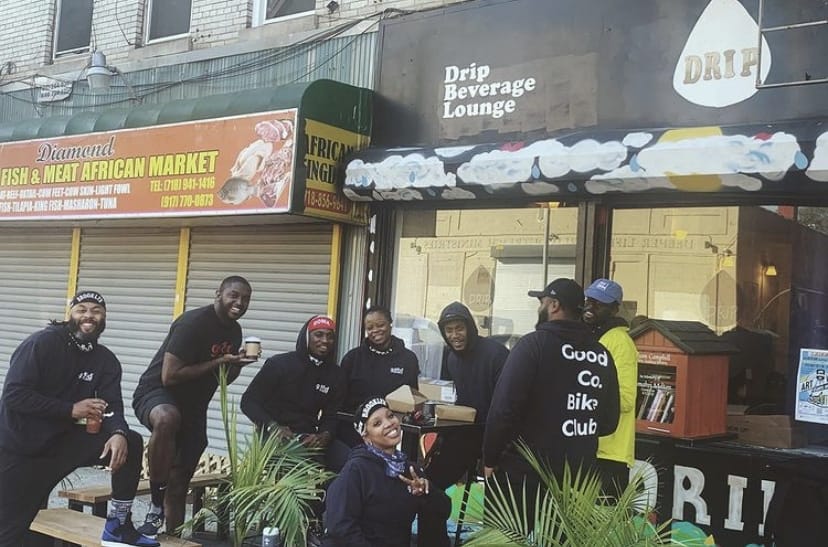
One of Amy ‘Amz’ Collado’s favorite New York staples is a cup of coffee and butter roll from the bodega. When she was thinking of names for her new skate club, the classic food item moniker stuck.
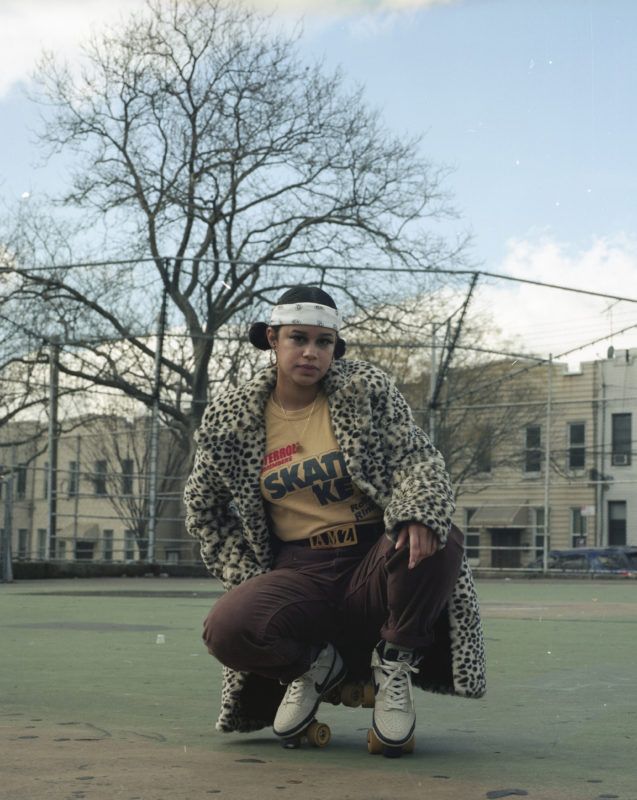
“I love coffee. And for a dollar, you could get a coffee and a butter roll.” Collado says. “And from then on, it became alive after that point. I can take it there. [The name] doesn’t have to be about roller skating or wheels or anything like that.”
Collado, a Brooklyn native, has always been intrigued by New York City history and culture, imagining herself one day as a city historian, collecting and telling stories of the vibrant place that raised her. So many aspects of this rich past intersects in her passion for roller skating, Collado explains.
“I fell in love with this sport for all of the other reasons outside of just being on wheels. The atmosphere, the music, the clothes, the style,” Collado explains.
Collado started Butter Roll Skate Club in 2015 and her first big event was a celebration of her 30th birthday in Prospect Park. With a Michael Jackson theme (they share the same birthday), Collado gathered with family, friends and community members to skate, dance and enjoy themselves through the oft-forgotten sport.
“It was the best feeling I’ve ever had,” Collado recalls. “I’ve had experience with coordinating and producing events and other creative things but I’ve never gotten that same sense of fulfillment as the first time I stepped foot in the rink.”
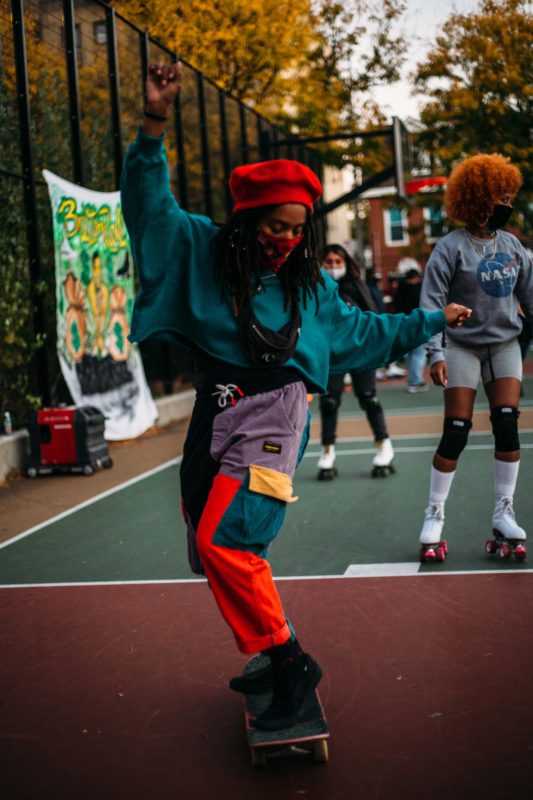
After that first event, Collado realized that organizing spaces where Black and brown folks can come together to share joy was something she loved and something her community could benefit from. From there, the name and the club grew. Collado began offering events at the LeFrak Center at Lakeside in Prospect Park after community members started a petition expressing their interest in Collado’s skate club.
Since its inception, Butter Roll has grown significantly and offers much more than a place where people come to skate. Focused on BIPOC wellness, Collado emphasizes that there is work being done through the gatherings-as big as addressing oppression and racism and as small as sharing a memory with family.
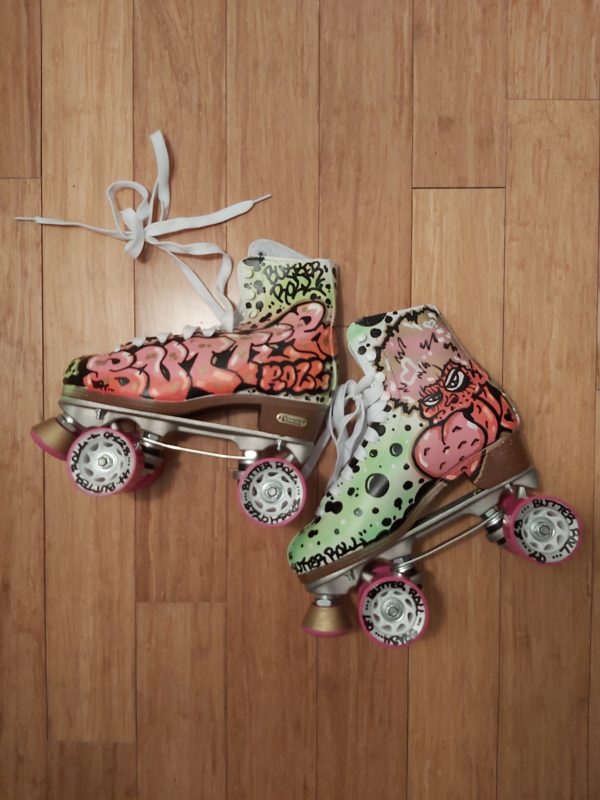
“Every single event is a frozen moment in time none of us will ever get back. I find it to be such an honor to live on through someone else. Someone may never come to another skate event” Collado says. “But if they came to just one Butter Roll event with a particular friend or family member, I’ll always be a part of that memory.”
The pandemic has not slowed Collado’s roll, just shifted her focus and technique a bit. 2020 brought with it a need to bring exercise, sports and gatherings outdoors, where skating thrived. One of Collado’s most memorable events of the year was in Bushwick where she was able to provide free food and even better fun for the crowd.
“It was the best, wildest dream I’ve ever had come to life” Collado says. “It was wild as hell because the food was bomb, the music was off the chain, the sound system was so much more bumping, it hit different in that basketball court in a way that it hadn’t done at Prospect Park, the floor was great, the way the sound traveled in the park, the people there were the vibe.”
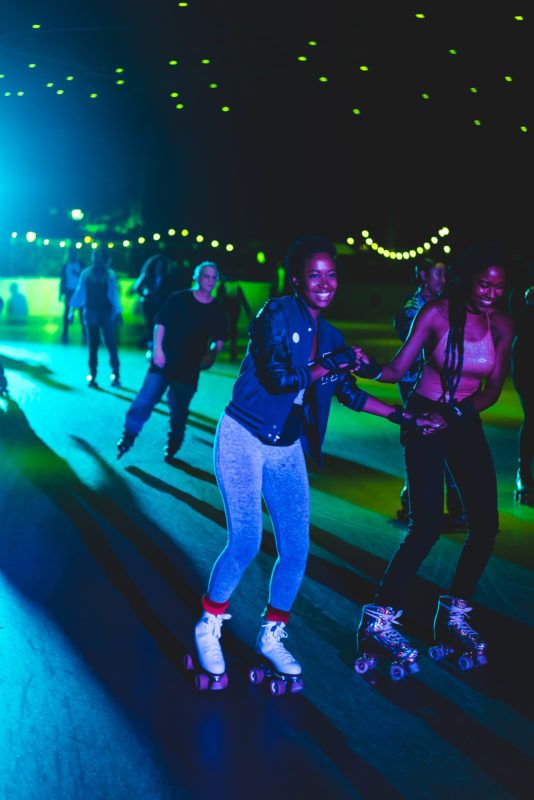
2020 also sparked Collado’s confidence and next step in her work: opening up a skate shop. Initially interested in starting a roller rink, she realized the city isn’t ready to revive that part of its past yet. So she’s starting with an investment campaign to open the first Black and brown owned skate shop in New York, a welcoming place where people can get quality gear or quality company, and she can promote underrepresented work and art.
“My ultimate goal with the skate shop is being accessible to folks,” Collado says. “Having a third space where people can go and congregate and connect with each other. But ultimately, make more New Yorkers into skaters. Period.”
Collado hopes that if enough skaters are rolling through the outdoors, on the streets or in parks, the city will realize they need to invest in a new roller rink.
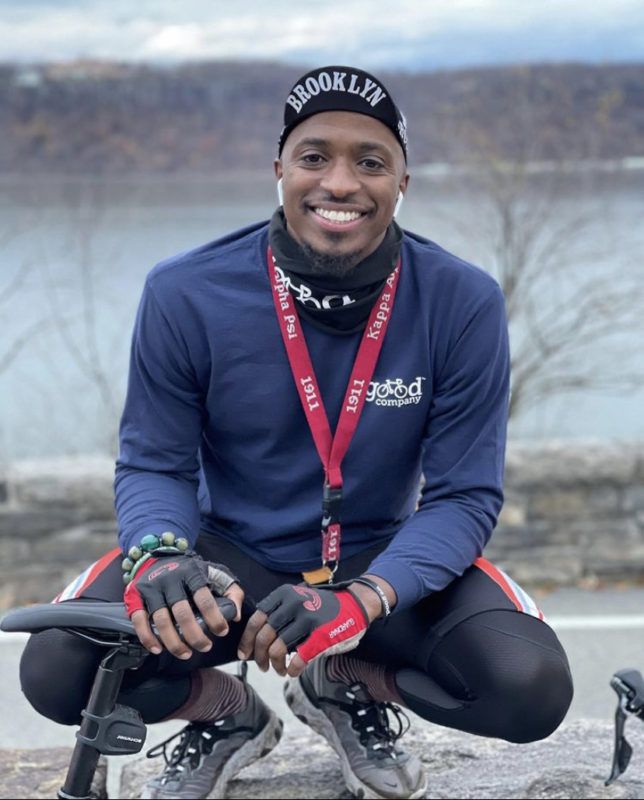
Andrew Bennett is another Brooklyn resident who is striving to create more inclusive spaces for people of color through his bike club- Good Company. What began this past summer as a call for fellow cyclists to join him on a leisurely ride morphed into a full blown bike club after his unintentionally massive Juneteenth ride through Brooklyn, with stops at Coney Island and Fort Greene Park.
“I was expecting 50, maybe 200 people to show up and it ended up being 1,500 people. I think that’s what really elevated the bike club,” Bennett says.
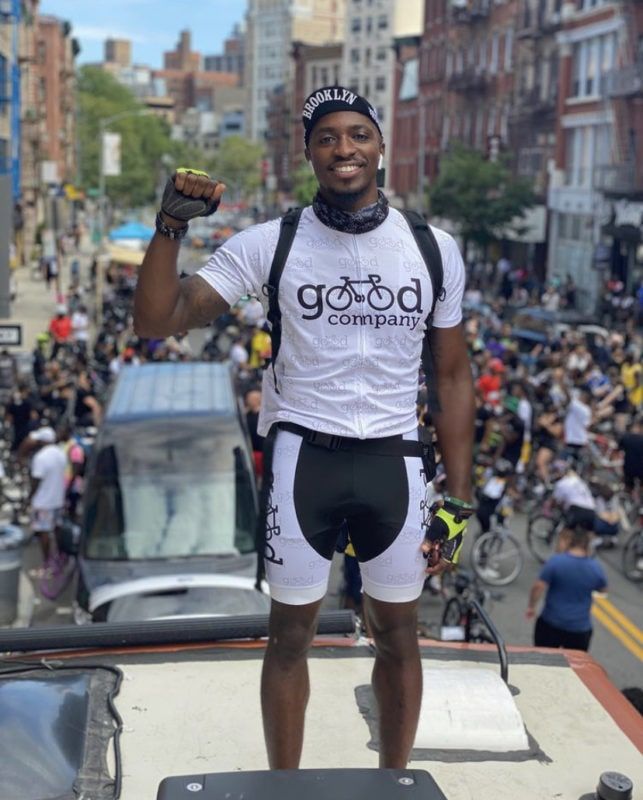
Like Collado, Bennett explains that the bike club is less about the act of cycling and more about the social aspect. Both of the club founders believe that these spaces are important to the well-being of Black and brown folks, communities where they can come together to share common interests and camaraderie, part of a bigger picture of wellness for BIPOC that isn’t solely focused on physical health, but mental and emotional health as well.
A Brownsville native, Bennett wants to increase access to cycling for people in his neighborhood, and neighborhoods like it, that have been notoriously left out of conversations that include them in the ever-growing hobby. Brownsville and other majority Black and brown neighborhoods in Brooklyn are not conducive to biking>. With little protected bike lanes and streets in poor conditions, cycling isn’t safe for residents of these areas. Add in the lack of bike share stations and you have a recipe that creates a vast inequity in the Brooklyn cycling community.
“You see cycling only in certain neighborhoods, protected bike lanes only in certain neighborhoods where the roads are a lot nicer,” Bennett says. “Being from Brownsville, I’m a huge advocate for the community. We do this to let people know that we bike too.”
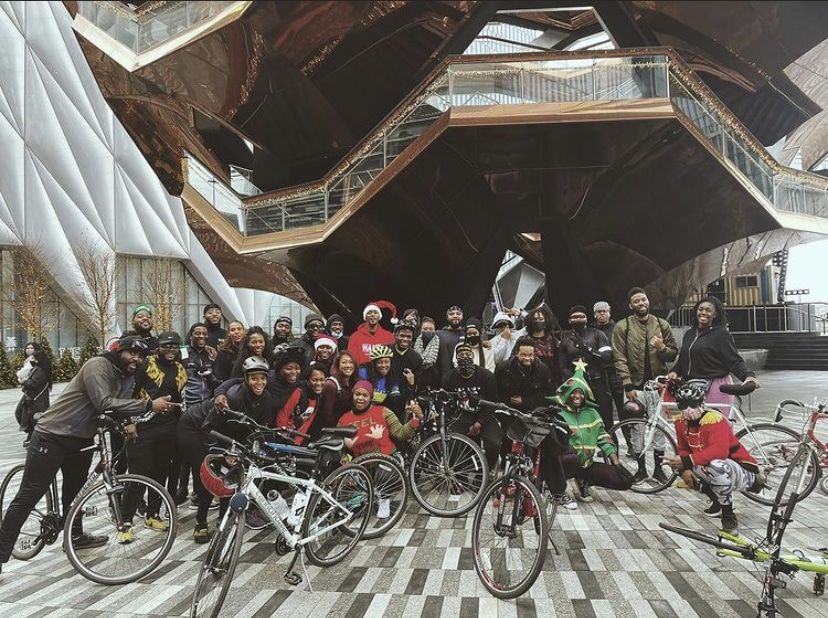
For both Collado and Bennett, opening up these activities for their shared communities is important, as well as uplifting other BIPOC in their work. For Bennett, that means supporting local Black owned businesses during the organized rides. It also allows him and his co-riders to share a meal or a drink, upholding their namesake of being in Good Company.
Although there is activism inherent in Bennett’s club, he emphasizes that it isn’t the main purpose of the cycling group. Too often, he says, groups of Black and brown people are seen as having to represent resistance and protest when they come together. Though Bennett says that’s one part of Good Company, he assures that it isn’t the full scope. Most of the time, it’s just about fun.

“Even when I google the word ‘cyclist’ you don’t see a Black person, you especially don’t see any Black women. Or anybody of color for the most part. It’s mostly white men in their 40s or 50s in full cycle gear.” Bennett says. “People don’t necessarily think about the recreation of [biking] and I want to change the face of cycling and show that a group of Black bikers aren’t necessarily protesting.”
Collado thinks fun is important as well, and is also the driving force behind her events and club’s purpose. “I just want Black and brown people to have a good time,” Collado says. “That’s all it is and really what it comes down to. I want them to have a beautiful experience.”



